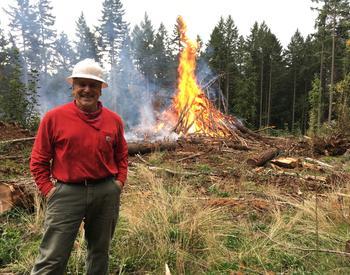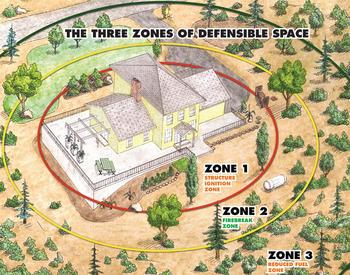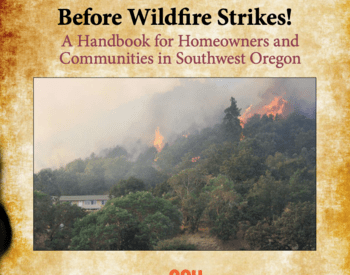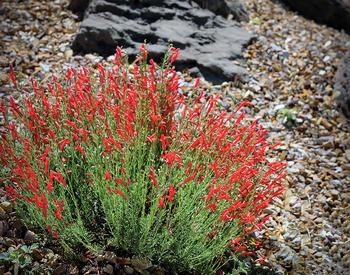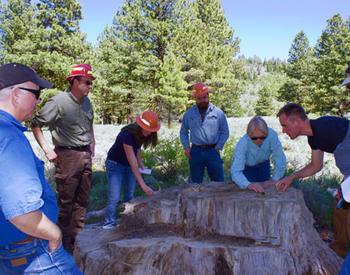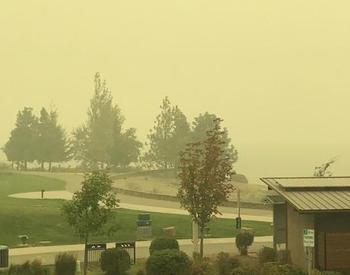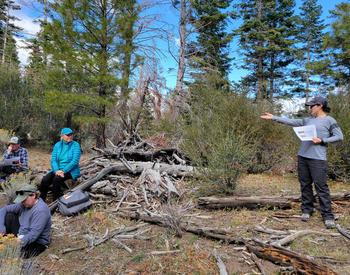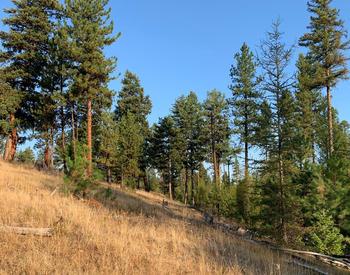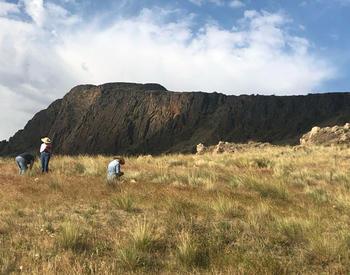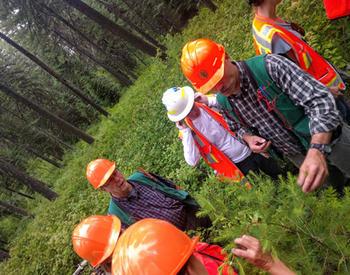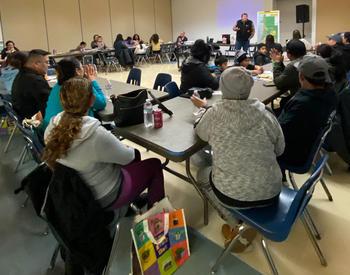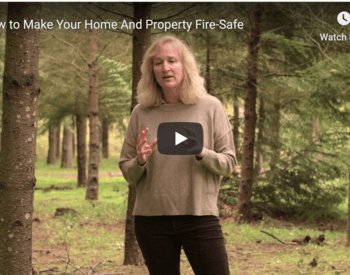LINCOLN COUNTY, Ore. – The Echo Mountain Complex wildfire that ignited in Lincoln County on Labor Day in 2020 destroyed 300 homes – and left hundreds of wells and septic systems needing to be repaired, pumped or replaced.
The fire burned homes in and around the Otis community – most of them manufactured or in unincorporated neighborhoods without access to city utilities, according to Chrissy Lucas-Woodruff, groundwater protection specialist and outreach coordinator for the Oregon State University Extension Service.
Fire survivors want to get back to their land and rebuild but can’t get permits until their wells and septic systems are in order, said Lucas-Woodruff, who was asked by Lincoln County Commissioner Kaety Jacobson to lead the new Lincoln County Septic and Water System Repair Program.
It’s a complicated process and, until recently, there’s been little funding to help.
“What we started seeing early on was about a third of systems survived, a third needed some repairs and a third were destroyed,” Lucas-Woodruff said. “There wasn’t much emergency funding available. Most resources were dedicated to the larger fires in Medford, up the McKenzie River Valley and the Beachy Fire in Santiam Canyon.”
Jacobson, a former Oregon Sea Grant Extension fisheries specialist in Newport, was aware that Lucas-Woodruff has 15 years of experience as a groundwater protection specialist.
“Lincoln County has sanitarians in the planning department, but the department is strapped,” Jacobson said. “Originally, we were looking to hire someone temporarily, but we wanted some added value. Chrissy came to mind because I’ve worked with her before. She has knowledge about the systems and where to start. She has added capacity to the county. I couldn’t do it without her. We know she’ll have a big impact.”
As Lucas-Woodruff and Jacobson began the program it quickly became apparent that many people either didn’t have insurance or were underinsured.
“You don’t think about utilities when getting insurance,” she said. “To put a new well or septic system in is really expensive, but you can’t build without them. A lot of people are really stuck. They can get enough money to build their house, but not their utilities. And the cost of lumber went up so much during the pandemic there’s not as much money as the house is worth.”
Lincoln County was able to secure initial funding through the state’s budget readjustment process with the help of Sen. Dick Anderson and Rep. David Gomberg, but with repairs to septic systems running upward of $40,000 per site, additional funding was needed. Working together, they were able to secure an additional $2.5 million for septic systems and $500,000 for wells from the state.
While waiting for the additional funds, Lucas-Woodruff is working to get the program up and running. She and Jacobson are distributing flyers in English and Spanish and visiting fire survivors where they’ve landed after the fire stole their homes.
The flyers encourage landowners to apply for the repair program. Lucas-Woodruff helps them through the application process and acts as an intermediary between the county, which distributes the money, and the contractors who do the repair work.
“The contractors do the work and then instead of charging the people getting the repairs, they send their bill to me,” she said. “We’ve got two contractors to do inspections and repairs so we can get people into the inspection process. Then they can get the repair or replacement. The contractors pay me, and I bill the county. That’s some of the steps for people getting a new septic system and there are a lot of steps.”
Lucas-Woodruff said contractors will be part of the outreach to fire survivors. They’ve agreed to delay payments and are distributing flyers about the program. That’s a big help, she said.
Within three weeks, 74 out of 400 residents completed the applications, an indication that many more will apply, something that pleases Lucas-Woodruff, who said her next-door neighbors lost a house to fire two months before the Echo Mountain wildfire. They’re still not back home.
“I’ve seen them – and some survivors who live up the Santiam – go through it personally,” Lucas-Woodruff said. “I understand how frustrated they must be. I feel empathy for each person I have had the privilege to talk to. Each conversation is different, but the intensity of emotions from disbelief to anger is ever present. This program is special to me. If I can take one piece of the rebuilding process and make it easier, to hear the relief of just one less worry, it would be worth the process.”
